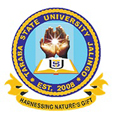Partners in Progress: The Role of Unicef and Taraba State Government In Achieving Millenium Development Goals, 1991-2023
Atando Dauda Agbu
Department of History and Diplomatic Studies, Faculty of Arts, Taraba State University, Jalingo
Babale, Tanimu Shitta
Department of History and Diplomatic Studies, Faculty of Arts, Taraba State University, Jalingo
Email: tanimubabale1@gmail.com
&
Iliya Gimba
Department of History and Diplomatic Studies, Faculty of Arts, Taraba State University, Jalingo
Abstract
This study examined the partnership between UNICEF and the Taraba State Government in the achievement of Millennium Development Goals (MDGs), with a specific focus on Water, Sanitation, and Hygiene (WASH) interventions in Taraba State from 1991 to 2023. The research explored the nature of this collaboration, assessing the impact of various programs implemented by UNICEF, including the provision of clean water, sanitation infrastructure, and hygiene education campaigns. Through a mixed-methods approach involving both qualitative and quantitative data, the study identified the key outcomes of these interventions, such as increased access to safe drinking water, improved sanitation facilities, and changes in community behaviors regarding hygiene practices. However, despite these advancements, the study highlighted several challenges, including inadequate maintenance of WASH infrastructure, insufficient funding for sustained efforts, and limited capacity at the local government level to manage and monitor WASH services. Additionally, the study revealed disparities in WASH access between urban and rural areas, where rural communities still face significant barriers to obtaining clean water and sanitation. The research also delved into the prospects for future WASH interventions in Taraba State, suggesting that a more integrated approach involving stronger institutional coordination, greater community involvement, and improved funding mechanisms was essential for achieving sustainable development in the sector. Ultimately, the study emphasized the importance of continuing partnerships between UNICEF and the Taraba State Government to ensure the long-term success of WASH programs and the continued progress towards meeting the sustainable development goals (SDGs) post-2023.
Keywords: UNICEF, Millennium Development Goals (MDGs), Water, Sanitation, and Hygiene (WASH), Sustainable Development Goals (SDGs)
Introduction The adoption of the Millennium Development Goals (MDGs) in the year 2000 marked a global commitment to addressing some of the most pressing development challenges facing humanity. Among these goals, access to clean water, improved sanitation, and better health outcomes were emphasized as essential components of sustainable development (United Nations). Taraba State, situated in Nigeria’s northeastern region, epitomized many of the challenges the MDGs sought to overcome, particularly in relation to Water, Sanitation, and Hygiene (WASH) services. With vast rural populations, infrastructural deficits, and
